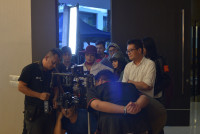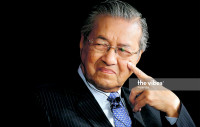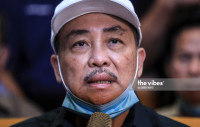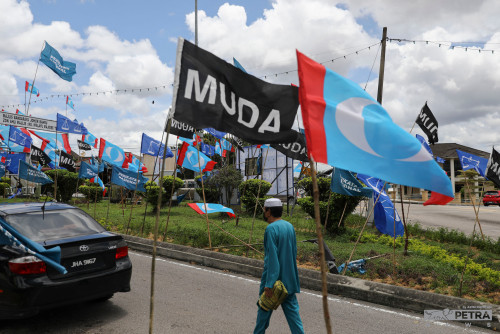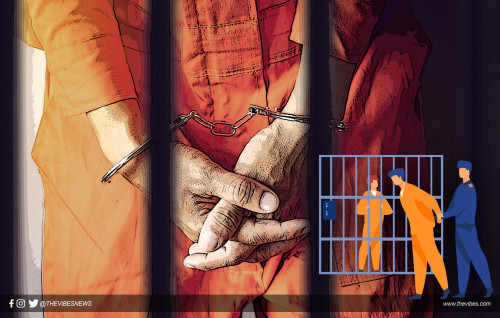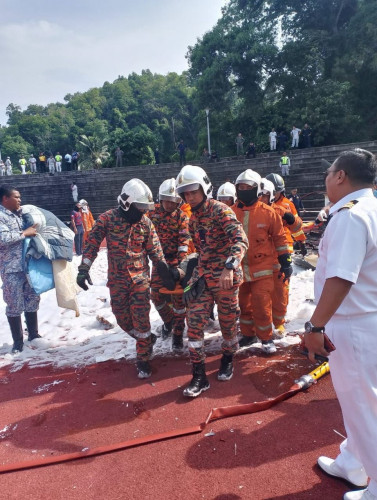EK: Before we begin discussing 'Mencari Rahmat' and your adaptation of Oscar Wilde’s 'Importance of Being Earnest', can you elaborate a little on your attraction to Oscar Wilde more generally, and to ‘Earnest’ more specifically …
AJY: I began to be interested in Oscar Wilde after I came across an essay by him entitled 'The Soul of a Man Under Socialism' in 1981, quite by chance. My interest in the movements of the Left began when I first saw Costa-Garvas’s 'Z' and Ken Loach’s 'Kes'. Wilde’s essay was concerned with individualism and, in my view, also with anarchism.
After that I began to be interested in reading the rest of Wilde’s writings; beginning with 'The Picture of Dorian Gray' till I finally read 'The Importance of Bring Earnest'.
Just as I had been captivated with the writings of F. Scott Fitzgerald, namely 'The Great Gatsby' and 'Tender is the Night', I felt that Wilde was almost "hounding" the society around him. I felt it was very important that I adapt 'Earnest' into Malay. I felt it was very relevant to our society.
'Mencari Rahmat' has been through several adaptation versions: Adlin Aman Ramlie first staged it in 2001 to wide acclaim. Did this staging influence the film adaptation at all? And what was your response to the dramatisation of your translation?
'Mencari Rahmat', staged by Adlin Aman Ramli in 2001 was, in my opinion, well conceived. It had very powerful "energy". The two aspects I stressed upon Adlin while in discussion were aspects of the "naughty" and "sexy" since that, in essence, was 'Mencari Rahmat' to me.
It must explore the sensuality of the Malays, which we commonly forget or choose to avoid discussing. And I felt that this staging to some extant, succeeded in capturing this aspect of sensuality and this sense of a traditional naughtiness.
This element greatly influenced my desire to work on a film adaptation of 'Mencari Rahmat'. One of the principal things I learned from Sidney Lumet in his adaptation of Eugene O’Neill’s 'Long Days Journey Into The Night' and Mike Nichol’s adaptation of Edward Albee’s 'Who’s Afraid of Virginia Woolf?' was that they were adept at remaining faithful to the original text while compounding on the visual aspect in their telling. This is the approach I adopted while in preparation for the film 'Mencari Rahmat'.

You had initially translated Wilde’s play into Bahasa Melayu: can you tell me what that experience was like? What were the difficult nuances – inherent in any translation – that proved especially acute here?
The challenge of adapting 'Earnest' was inherent in the writing style of Wilde himself. There were many who said it would be impossible to adapt 'Earnest' into the Malay language, impossible to adapt the distinctive wit of Wilde into a language other than English. Another problem would be to choose a suitable name to replace ‘Earnest.’ In the end, I decided on the word/name Rahmat for Earnest.
And the principal topic of conversation between Jack and Algernon also needed to be altered. The conversation about wine, for example, was altered to a debate about music instead. This process took a period of 10 years to for completion. But, as I have mentioned here, the process of altering it into a screenplay was rooted in the approaches of Sidney Lumet and Mike Nichols, where both of them employed the original text when adapting the films 'Long Day’s Journey Into The Night' and 'Who’s Afraid of Virigina Woolf?'.
“Society is the most forbidding prison for the individual,” – you were once quoted as saying in an interview. While translating/adapting 'Earnest', your complimentary reading was also Wilde – 'The Soul of a Man Under Socialism'. Society – that’s a big theme – how did your gaze upon your society influence the translation/adaptation?
My late grandmother used to say that the most damning thing is when good people remain unaware of the bad they have done. That, to me, is the theme of 'Mencari Rahmat'. Society often acts cruelly without realising it. It expounds further the notion that humanity’s worst enemy is itself. In 'Mencari Rahmat' I add that humanity’s worst enemy is society itself.
I once spoke to a teenager who had dumped her baby, who was born out of wedlock. Her reason for doing that was fear of society’s views of her. That, to her, was the most forbidding thing for her to confront. This, for me, is the tragedy of humanity. No one can directly be blamed.
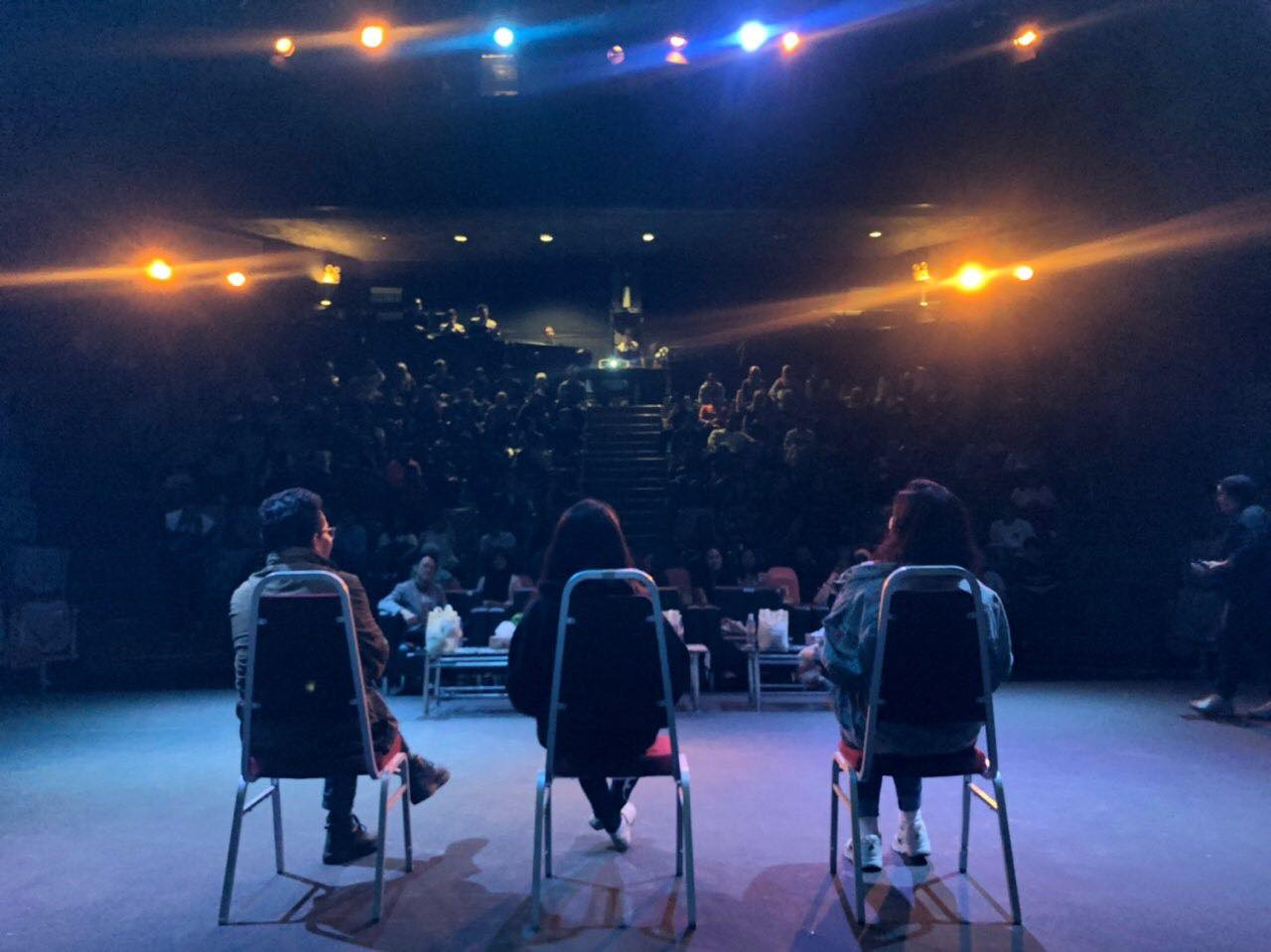
You have always spoken of the importance of the writing process in the art of filmmaking – can you elaborate on that? Is it an aspect of filmmaking today that is neglected?
The screenplay is the blueprint of any film. All of it begins with a screenplay. Budget, location, casting, visualisation … All of it … Without due attention towards that process of writing the screenplay, all the processes which follow would be disrupted. Many have reminded me that directors like Wong Kar Wai have directed their films without a screenplay.
But it must be remembered that Wong Kar Wai emerged as a filmmaker following a period as a scriptwriter who had written hundreds of scripts for television. He has understood and become synergised with the process of shaping a screenplay. The art of the screenplay is very important, and the neglect of it is one of the principal problems with filmmaking in Malaysia.
'Rahmat' was originally intended for television: you later adapted it for the film screen. Is there a difference in perspective when dealing with these two mediums?
'Mencari Rahmat' was, in fact, originally written for film, not for television. It’s just that the alterations with my writing and the writing of Wilde are not very different since Wilde’s style, to a great degree, influenced my own writing. This can also be seen in my directorial debut 'Melur vs Rajawali'. What more, that screenplay was wholly adapted from the original script of the stage production of 'Mencari Rahmat'. My only condition was, if it were to be made into a film, I would have to be the director.
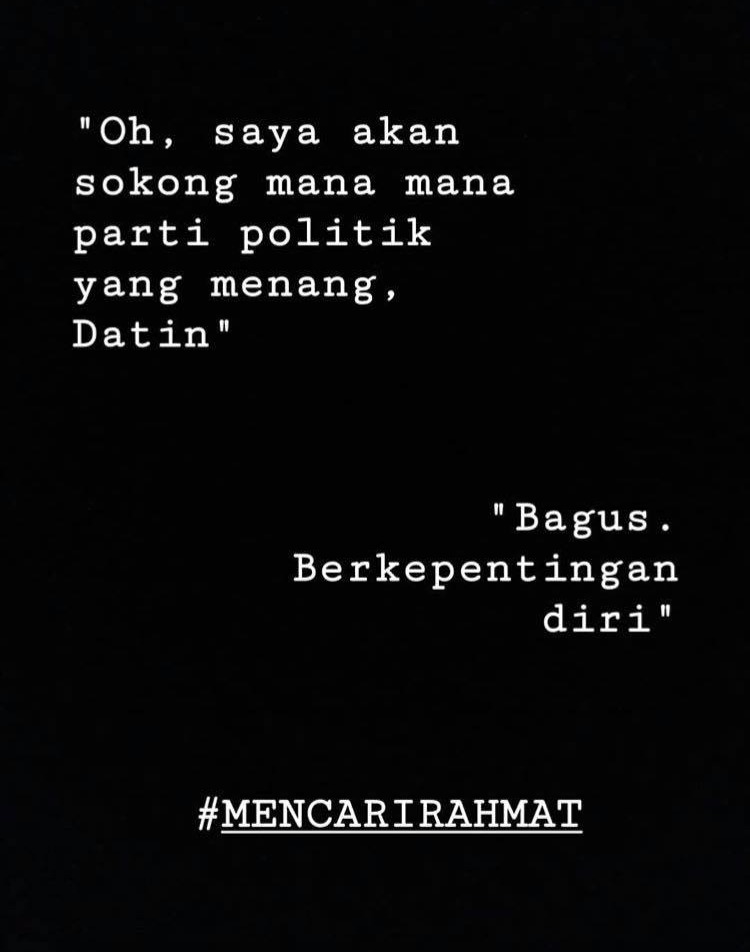
The interaction between literature and film in the Malay world has been an intimate one – from the beginnings of Malay cinema and its evolution, especially in the age of Jalan Ampas. What is your evaluation of this relationship and the films that were produced as a result of it?
I feel that this tradition of adaptation, whether from Malay or World literature has not been a continuous one. This is a result of various constraints from the time of Jalan Ampas to all that is happening today. I can provide an example from Hollywood- Billy Wilder once said that if he had directed 'The Apartment' in the 1970s, it would have been a great deal more provocative than his version of the 1960s.
This is based on a conversation I had with a friend about the elements of sex and sensuality of the Malays as demonstrated in classical Malay texts. It would be very interesting to observe what the interpretations would be if they were filmed today. Only a small few have the courage to go through the process of adapting literature now. I believe it should be a more sustained and consistent effort.
Kurosawa and Shakespeare; David Lean and Pasternak; Satyajit Ray and Bibhutibhushan Bandyopadhyay; Philip Kaufman and Milan Kundera; Robert Mulligan and Harper Lee; U-Wei Sha’ari and William Faulkner; Werner Herzog, who considers himself a writer foremost, and so adapts himself. Literature and film: why?
Even before there was theatre, there was literature. I myself learnt the art of storytelling from literature. Beginning with John Steinbeck – 'The Grapes of Wrath', 'Of Mice and Men' – to F. Scott Fitzgerald, Oscar Wilde, Herman Melville and Maxim Gorky – 'The Lower Depths' – till I eventually learnt the art of film. It is so important to understand the processes of both these forms.
Billy Wilder once said that the screenwriter controls the structure of storytelling while the novelist is a master of prose. This was based on his own experience of writing screenplays with Raymond Chandler – 'Double Indemnity' – Charles Brackett and I.A.L Diamond. An understanding of these two disciplines is crucial for a writer and a film director.
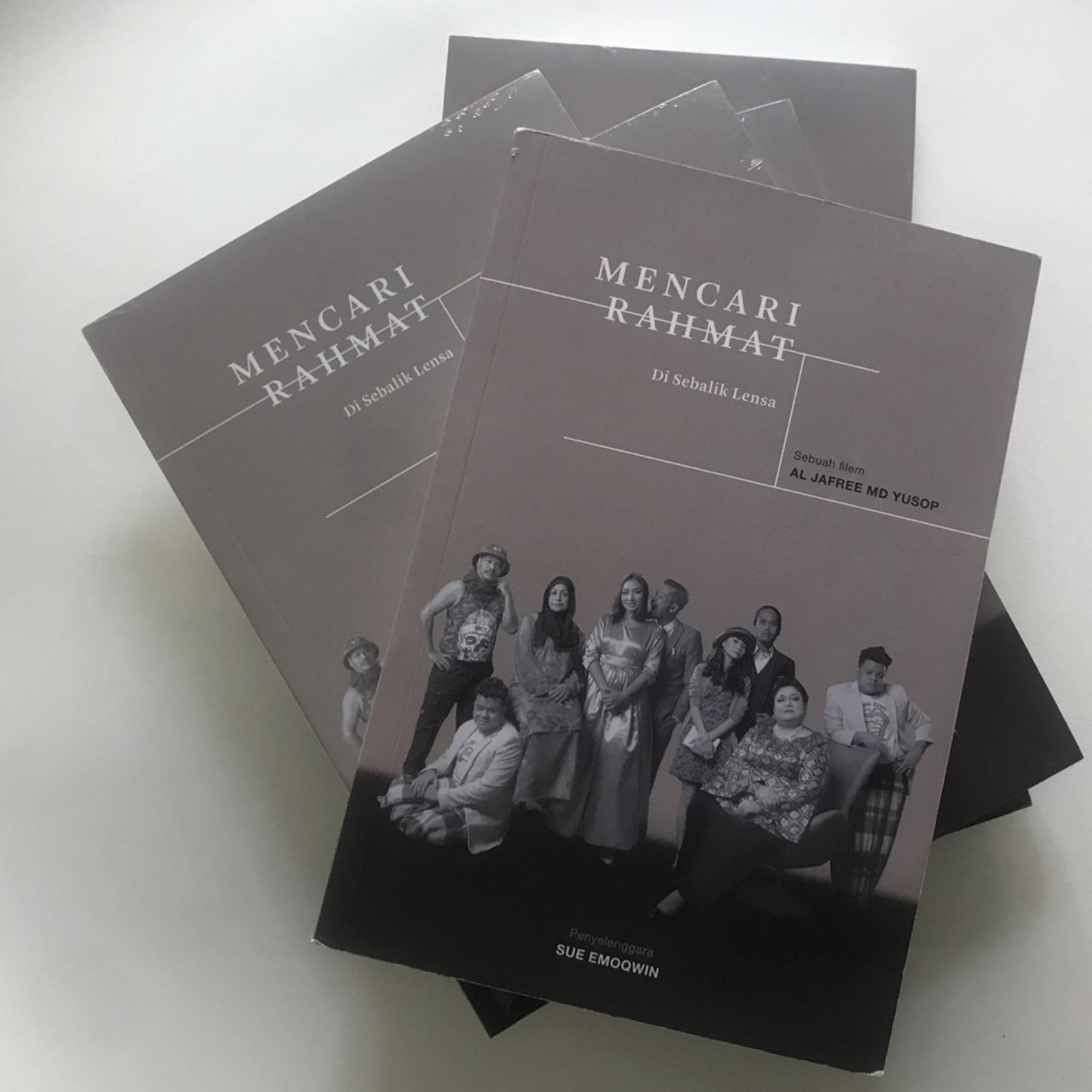
What do you think are the best adaptations that have been done for the big screen?
There are two adaptations of play scripts for films that I love – 'Long Day’s Journey Into the Night', directed by Sidney Lumet from the play script of Eugene O’Neill and 'Throne of Blood', directed by Akira Kurosawa from Shakespeare’s 'Macbeth'. Sidney Lumet was incredibly brave in representing O’ Neill’s play without any changes.
This was my inspiration when producing the film 'Mencari Rahmat'. I used the original script of the stage production without any changes. Lumet proved this could be done successfully. 'Throne of Blood', meanwhile, is an example of how a work from the West can be adapted for the cultures of the East. Most important was its subject, which remained relevant even as the cultures were very different. Kurosawa gave me the confidence that this could be done.
Can you elaborate on what you believe is the worth of translation to anything language?
Adaptation is very important. Most importantly, when a subject conveyed by a certain work from one culture to another is directly related to the characteristics of that culture. For example, a work from the West, the subject of which remains relevant nevertheless to a culture of the East. Adaptation allows for a far greater number of people to appreciate it.
I once watched a production of Arthur Miller’s 'Death of a Salesman', done in translation. I had a problem relating with what I was watching when the character Willy Loman spoke in Malay but referred to places like Brooklyn and New York. I felt detached while watching it. It was here that the importance of adaptation was affirmed for me.
Adaptation, as consummated by Kurosawa, was far more effective in its narrative, especially when we adapt a text from the West to explore a society and culture in the East because its subject remains relevant, feels close and is universal. – The Vibes, November 22, 2020
Interview with Al-Jafree Mohd Yusop transcribed and translated by Eddin Khoo.
The screening of 'Mencari Rahmat', originally scheduled for cinemas in December, has been postponed due to the CMCO.




.jpg)


